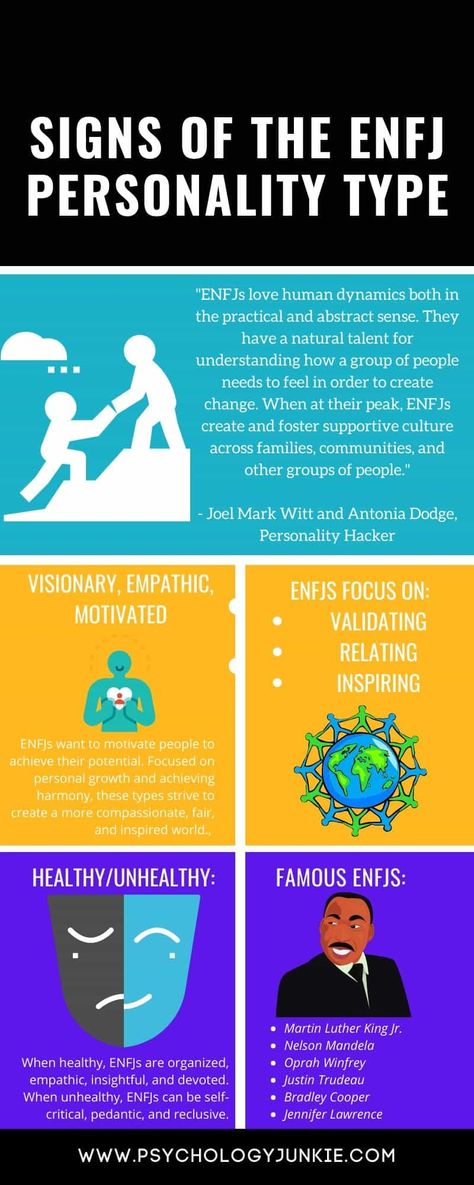How to leave a marriage
How To Plan To Leave Your Spouse
If you’re considering ending your marriage, the road ahead can seem overwhelming, paved with financial, emotional, logistical, and domestic challenges. Walking out abruptly in a heated moment can only result in making things worse in the long-run for both you and your partner. Being prepared with a deliberate exit plan to set yourself up for self-sufficiency can help protect you from potential legal losses and emotional hardships.
When you’ve made the decision to leave your spouse, don’t just pack your bags and walk out the door without having any other plans than, “I’ll be at my mother’s/friend’s.” This is a major life decision. Craft your exit strategy carefully, make a plan, and prepare for the road ahead.
When should I start preparing?
Start preparing 2-6 months before you separate. Even if you think your spouse will handle the news well and not cause the problems typically thought of, setting yourself up for success after the separation will put you in a better mental position to handle the complexities of the divorce process.
What are the steps to leave my husband/wife?
In general, plan for your children, division of property, and financial arrangements to be worked out. Remember to think clearly and rationally — do not make hasty decisions made out of anger or sadness.
Here are some immediate steps to take and things to start doing as soon as you’ve made your decision:
1) Gather Documents & Keep Records
Make copies of all your important documents. Keep records of everything – notes, email, text messages – no matter how trivial you think it is. The more information you have, the better.
Read our article on gathering documents for divorce or separation.
Review the list of documents needed in our separation agreement questionnaire.
2) Open a Separate Bank Account & Create Your Own Budget
Go ahead and open up a separate checking and savings account at the bank. You’re going to need to handle your own finances and become accustomed to drafting a budget for monthly expenses. If you’re expecting a change in lifestyle, consider adopting a budgeting technique.
If you’re expecting a change in lifestyle, consider adopting a budgeting technique.
3) List Property & Other Assets
Start listing your assets and property. Taking inventory of what is marital property vs. separate property will help you prepare for equitable distribution.
4) Plan the Logistics of Your Exit
Consider all aspects of leaving – before, during, and after. Where will you live – with family, a friend, an apartment? Will you need a PO Box to receive your mail? When will you pack your things? All of these things must be well thought out before you actually separate.
5) Contact a Divorce Lawyer
Separating from your spouse, whether permanently or temporarily, can be one of the hardest things you’ll ever do. If children are involved, their health and well-being depend on how tactfully you handle the situation. When it comes to child custody or child support, forgoing the representation of a divorce attorney can have lasting effects.
Do not take any actions or sign any agreements that could later complicate the divorce process, until you’ve spoken with a family lawyer.
This is a lifelong decision. An experienced family law attorney can help you navigate the legal process and take the pressure of an already stressful situation.
6) To Tell Your Spouse Or Not
This moment can be freeing, nerve-racking, or even terrifying in terms of coming right out with it.
When should you tell your spouse that you’re leaving? It’s usually best to tell your spouse of your intentions when you’re ready to physically leave. Telling him/her sooner invites complication – legally, emotionally, financially, and more. It’s best to keep your decision to yourself until you leave.
Do it at a time when you both can discuss it (so, not right as they’re running out the door for work) and at a safe place. As much as you may want to rip the band-aid off quickly, and just say your piece and be on with it, you’re going to have to allow for an open discussion with your spouse.
In some circumstances, it may be better to move out prior to the date of separation without informing your spouse. If this is your plan you should discuss how to proceed with a family law attorney prior to taking this action.
If this is your plan you should discuss how to proceed with a family law attorney prior to taking this action.
7) Tell Your Children
When it comes to telling your kids the news, tell them together with your spouse if possible. With our without your spouse, avoid the blame game, and let them know it’s not their fault. Wait until you know for sure that you are leaving to tell them. Including uncertainty will only make children, especially young children, more unsure and confused.
Stay strong for your children. You need time to deal with your own emotions from this major life event, but your children will need comfort and assurance (even if you don’t feel so sure, yourself).
Understanding the various forms of custodial arrangements will help you to feel more confident. Review our Child Custody & Visitation page.
For more on post-divorce family communication, read our “6 Tips for Successful Communication for Raising Your Child”.
8) Leave
Actually walking out the door and leaving can be more emotional than anticipated, even if both parties wanted the separation. Have a friend or family member you can call or spend time talking with about it.
Have a friend or family member you can call or spend time talking with about it.
Support & Guidance
Don’t feel you’re in this alone. Seek guidance from an impartial party or professional. Tell a few trusted close friends or family members who are able to keep things under wraps what you are planning to do.
The Full Picture
These are only some of the steps necessary to protect yourself and your family as you make this life decision. There are numerous other aspects to address when you’ve decided to separate or end your marriage: Change the beneficiary on your insurance policies and estate plan. Consider your own health insurance policy. Obtain a copy and monitor your credit report to make sure your spouse isn’t spending excessively or vindictively, making sure all bills are being paid, and that there is no negative activity on the report. The list goes on.
An experienced divorce attorney can guide you through the steps of divorce, and make sure you dot your i’s and cross your t’s (in a legal sense). Proper preparation and handling of divorce will also help minimize emotional or financial struggle.
Proper preparation and handling of divorce will also help minimize emotional or financial struggle.
If you are thinking about separating from your spouse, please contact the divorce attorneys of Alexander & Doyle, P.A below.
Please keep in mind that these are NOT the steps for every situation and you should consult with an attorney prior to taking any action. For example, an abusive relationship, which require another level of changing phone numbers, carefully concealing information like your new address, and so on. In cases where verbal or physical abuse is present, extra steps may be necessary to protect oneself. If you have any questions about handling an abusive relationship, please contact our experienced, compassionate domestic violence attorneys.
How to leave your marriage - Why is it so difficult?
Why can’t you leave?Many people find themselves in unhappy relationships but just cannot seem to leave. Perhaps you are in this situation; you have discussed it with friends, are having an affair and have been thinking about it for a year or more. However, it is not uncommon to just not be able to bring yourself to do it. You spend days, months and then years torturing yourself over this decision. So what is stopping you leaving your marriage?
However, it is not uncommon to just not be able to bring yourself to do it. You spend days, months and then years torturing yourself over this decision. So what is stopping you leaving your marriage?
We are going to explore the reasons and emotions preventing you from moving on and keeping you trapped in an unhappy marriage.
Fear is holding you backYou are likely to have avoided taking the decision due to a range of fears:
- losing your children
- not coping
- having insufficient money
- losing friends/family/community
- being alone
- others judging you
- hurting someone you care about
- facing uncertainty
Some fear is useful, it makes you to assess the situation and plan for any eventualities. However, the fear is less useful when you have made up your mind but you cannot move forward.
Fear of uncertainty is also powerful, as it makes us all feel a loss of control. People often hope that they will find an answer which makes clear what to do. They will run dilemmas past friends, or search the internet for articles such as this one, hoping for a certain answer . At the end of the day, they always feel unsatisfied as there is no easy solution.
They will run dilemmas past friends, or search the internet for articles such as this one, hoping for a certain answer . At the end of the day, they always feel unsatisfied as there is no easy solution.
As the fear takes hold, we can become unrealistically catastrophic in our thinking. We might begin fantasising about being outcast, being totally miserable and eventually dying alone and penniless. The problem with this is that: (a) this is unlikely; and (b) you can fix things with time and patience.
So back to the worse case scenario of dying lonely and penniless……the truth is that you might struggle with money, and some people might be angry with you. But others will remain your friend, and you will find ways to adapt to your financial situation. Even if you do make a mistake, this does not mean you cannot rectify it with time.
The reason you are considering leaving this marriage is because you are unhappy. Improvements in life satisfactions will require change.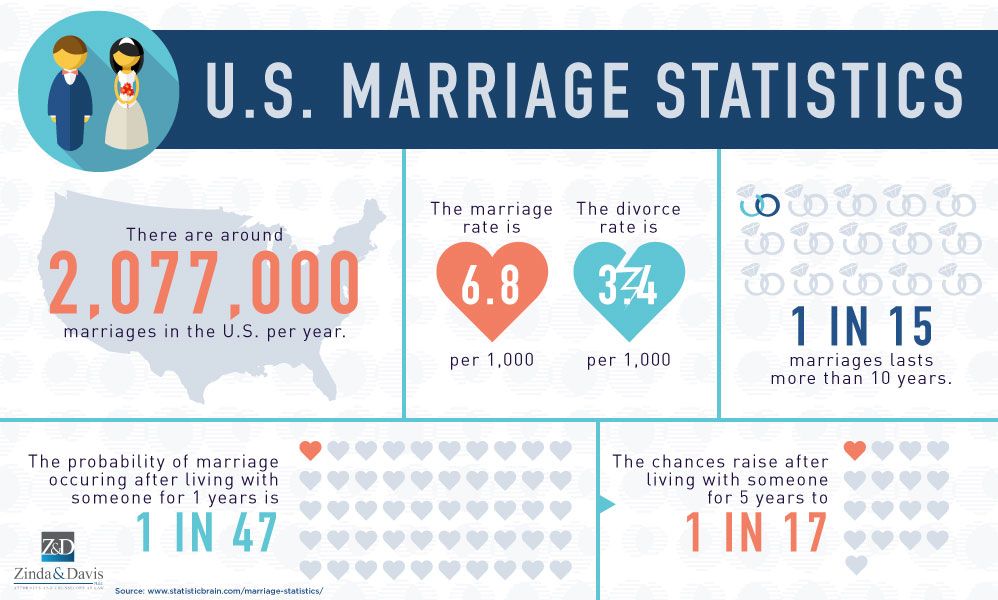 You will need to decide whether it will be easier to do it away from the marriage. If someone is restricting your freedom, or undermining your efforts, change might only be possible as a singleton.
You will need to decide whether it will be easier to do it away from the marriage. If someone is restricting your freedom, or undermining your efforts, change might only be possible as a singleton.
So reassure yourself by considering what is the worst that might realistically happen? Is there a way you could you deal with this?
Will change be easier outside of the marriage?
Regret – Want to avoid responsibility for the years wastedAre you someone who thinks that leaving now, will mean that the last 10 (or however many) years of the relationship will be wasted. On this basis, for every day you stay, leaving will get harder.
One way to look at this more helpfully, is that staying in a situation in which you have invested a lot in is normal. It has been shown that loss aversion is one of the most consistent human traits. Loss aversion makes people stay in jobs they don’t like, or stick to bad investments (or put even more money into them!), in the hope that they will not lose, and that something will work itself out. It is extremely hard to lose and have to admit you have made a mistake.
It is extremely hard to lose and have to admit you have made a mistake.
So consider whether it time to cut your losses?
Guilt – Have I tried hard enough?Many people feel guilty about leaving and wonder if they have tried hard enough. This leads to getting caught in an endless loop of, trying “just one more time or just one more year”.
These 3 considerations might help you get out of the trap:
- Am I unhappy due to my marriage or due to something else? For example, if you are also unhappy due to not liking your job, are you blaming your marriage unfairly? If you were to make other changes, would you still want to leave? If the answer is “yes”, then you have your answer.
2. Am I being prevented from making changes due to your partner? If you would like to improve communication, live your life differently, change jobs, but your partner will not support this, then you will remain unhappy for the foreseeable future.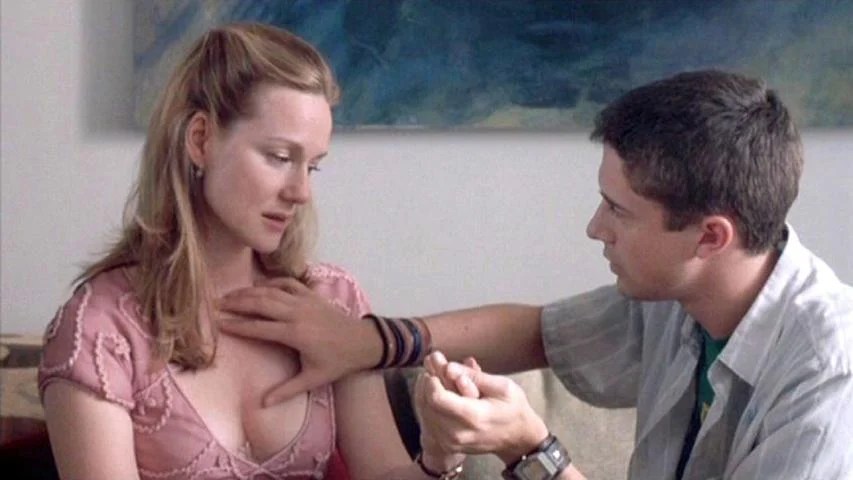 If you have not already tried, then tell your partner what you need (e.g. go out more, see more friends and have more sex). Make sure that you check what your partner wants too. If they are saying yes just to keep you, then they will become unhappy with change. After you have made the changes to your life, see whether this leads to an improvement in your marriage. You both need to be true to yourselves for this to work.
If you have not already tried, then tell your partner what you need (e.g. go out more, see more friends and have more sex). Make sure that you check what your partner wants too. If they are saying yes just to keep you, then they will become unhappy with change. After you have made the changes to your life, see whether this leads to an improvement in your marriage. You both need to be true to yourselves for this to work.
3. Have I ever really enjoyed being with my partner? Can you not stand them, possibly you struggle to remember times you ever really enjoyed? It is surprisingly common that we marry people we do not actually enjoy being with, as we feel they would make a good father/mother, they are “nice”, your family like them etc. If this is the case, you do not need to ponder too long.
Putting off the painIt is the most normal thing in the world to want to avoid feeling and causing pain. This means that you will find all kinds of reasons to delay your decision to leave, “I will wait until they finish school, until they have this interview, until their mother is better”….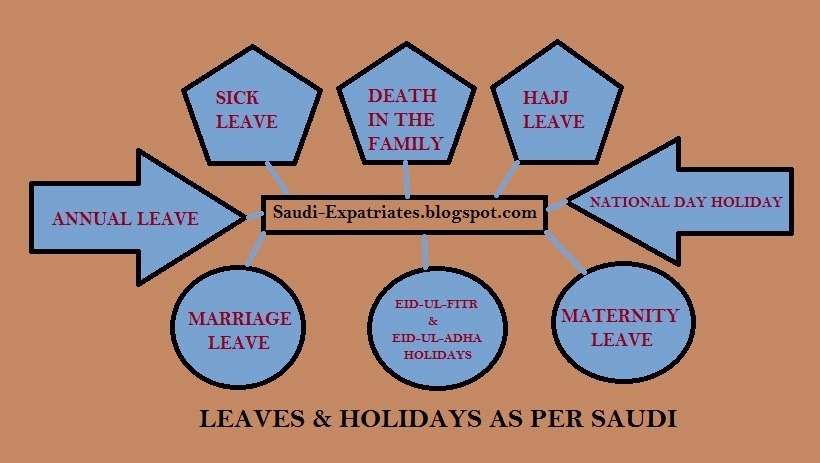 .Waiting for the perfect time is a dangerous game as this very rarely happens.
.Waiting for the perfect time is a dangerous game as this very rarely happens.
If you do leave, you will face a difficult time, and it will be messy for you and several people around you. Even if we can reduce and manage the pain and chaos, there is absolutely no way to eliminate it totally. However, if you can accept it while moving towards your own life values, then the distress will eventually make space for more and more happiness.
The 2 choices you are actually facingOnce you have thought about what fears are holding you back (and I am sure this has been on repeat in your mind), you only really have 2 choices:
OPTION 1: Stay in a relationship which is not making you happy and is unfulfilling. You may know deep inside, that one day you will regret not having been true to yourself. On the upside, you avoid the uncertainty, the upheaval and the pain is less intense over the short term.
OPTION2: Leave the relationship and immediately face an enormous amount of turmoil, uncertainty and pain. BUT you have the opportunity, for increased happiness.
BUT you have the opportunity, for increased happiness.
BOTH options are stressful and both involve pain.
You are responsible for living your life and making your choicesPeople often convince themselves that they are trapped by their obligations and commitments; they cannot afford to divorce, that they cannot expect their partner to change, or that their family will not be able to cope. If you are in this bind, then others have become responsible for your life and you will feel trapped. I have heard it described as making circumstances the jail and other people the jailor.
The truth is that you are responsible for feeling trapped as you have not acknowledged the choice you have made. It is OK for you to choose to stay in an unhappy marriage to protect someone or something. I knew someone who decided to stay in a loveless marriage because they feared a divorce would mean that they would lose their garden.
If you visualise getting to the end of your life, and still feeling that staying was the best thing you could have done, then do stay.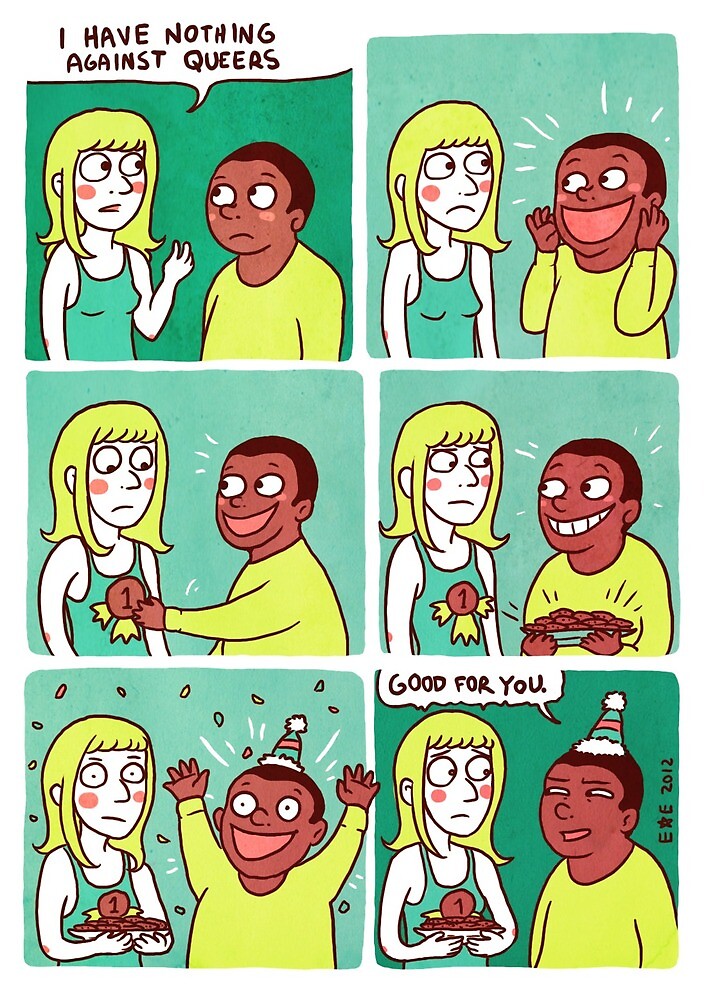 What we are recommending is that you acknowledge your intentions and choices, so that you feel more in control.
What we are recommending is that you acknowledge your intentions and choices, so that you feel more in control.
Who and what are you living your life for? will you regret this?
Be true to yourselfThe reason that you hear this line so often is because it contains a truth which is so fundamental to happiness. If you are feeling trapped, or that life is long and difficult, these are major signs that you are living a life which is not satisfactory to you in some fundamental way.
If you could live your life as you would like to, what would you be doing? How would you be?
Nothing is more soul crushing than living a life according to someone else’s values.
You have one life, how will you choose to live it?
————————
About Divorce Club:
Divorce can be challenging, but it is also a real opportunity for personal growth and change. Both Lucy and Isabelle co-founded Divorce Club back in 2016 for one simple reason – we know that no one should go through divorce alone! It’s now the largest Divorce Club in the UK.
Watch this 90 sec intro video by Lucy >
—————————
Join Divorce Club:
Learn more about Divorce Club and get 14 days free access by heading over to our membership page
Dr Isabelle Hung
Dr Isabelle Hung is a co-founder of divorceclub.com and a clinical psychologist. Having got through her own divorce, she is now remarried and happy to report that divorce really is an opportunity for growth and positive change.
How to survive a divorce? Psychologist's advice
During the coronavirus pandemic, amid general instability and the need to spend a lot of time together, a couple may decide to divorce. We figure out how to help ourselves in this case.
Svetlana Makhova, family psychotherapist, specialist
service for the selection of psychologists Alter
Advertising on RBC www.adv.rbc.ru
Divorce is inevitably associated with difficult experiences - it is always pain, disappointment, collapse of hopes, loss of a sense of stability and security, both for the one who initiated it, and for the one who will have to go through this path not of their own free will. There is no way to completely avoid heavy emotions. In any case, it will take enough time for the wounds of mutual grievances to heal. nine0003
There is no way to completely avoid heavy emotions. In any case, it will take enough time for the wounds of mutual grievances to heal. nine0003
What you need to understand about divorce, first of all
The husband and wife have been married for some time - a year, five years, ten, twenty. Over the years of living together, each invested strength, material wealth, and time in marriage. Husband and wife develop their own traditions and common habits appear: have breakfast together, go to the dacha on weekends in the summer or go on vacation to the sea, celebrate the New Year with their parents, meet mutual friends, and so on.
Habits create in our life a sense of stability, predictability, serve as a support for us, fill us with confidence in the future. What has become habitual gives us the opportunity to plan our lives - to look a little into the future. Standing on the threshold of life together, people made a promise to be together in sorrow and in joy, until death do them part. At that moment it seemed that it was forever and nothing else. None of them thought that one day the bonds of marriage would be broken and they would meet with the collapse of their hopes, expectations placed on each other, plans for life. nine0003
At that moment it seemed that it was forever and nothing else. None of them thought that one day the bonds of marriage would be broken and they would meet with the collapse of their hopes, expectations placed on each other, plans for life. nine0003
The news of a divorce is almost always unexpected. Even if the relationship of the spouses has long passed into the category of "once upon a time there were two neighbors." Even if one of them knew about the betrayals of the other, but was silent in the hope that everything would work out. Even if the spouses often swore, slammed the doors and promised to get a divorce, and after a couple of days they reconciled again or pretended that nothing had happened.
Divorce is a loss. The loss of not only a significant person in life, but also much of what has become familiar, and in some ways - expensive and even irreplaceable. One fine day, everything that created internal stability and nourished hope for tomorrow turned out to be inaccessible. That very expected tomorrow has ceased to exist, as if the future has been taken away from you. "How will I continue to live?" - such a question is more often faced by a partner who has been confronted with the fact of a divorce. The spouse who initiated the breakup comes to this question a little earlier. But the collapse of the future overtakes both. nine0003
That very expected tomorrow has ceased to exist, as if the future has been taken away from you. "How will I continue to live?" - such a question is more often faced by a partner who has been confronted with the fact of a divorce. The spouse who initiated the breakup comes to this question a little earlier. But the collapse of the future overtakes both. nine0003
A still from the movie Wild Life
© kinopoisk.ru
Divorce is a trauma. For some, it turns into a loss of the ability to enter into a new relationship, since trust in marriage as such has been undermined. In the case of a divorce, a person goes through the same psychological stages as with any severe loss: mourning, denial, anger, bargaining or negotiations, depression, acceptance or adaptation - and both partners go through them: both the initiator and the other side.
The initiator of a divorce, as a rule, goes through the first stage even before talking about it. His spouse enters the first stage at the time of the announcement of the decision to divorce.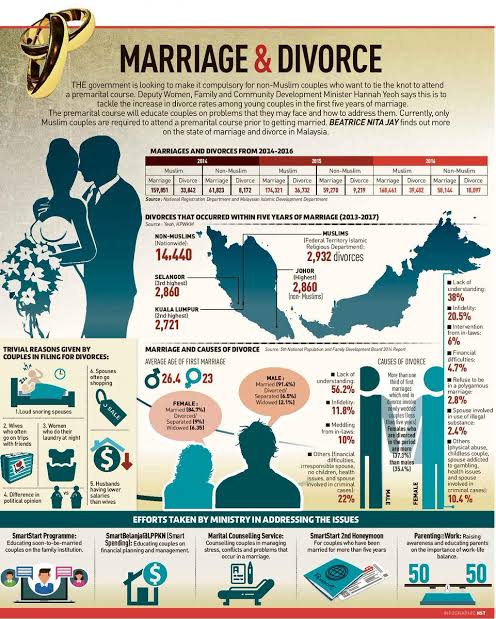 It is precisely because partners are often at different stages of coping with loss that during the divorce process it can be so difficult for them to understand and hear each other, to agree on anything. This is important to understand and take into account. nine0003
It is precisely because partners are often at different stages of coping with loss that during the divorce process it can be so difficult for them to understand and hear each other, to agree on anything. This is important to understand and take into account. nine0003
There is no difference between how men and women experience loss. There are very emotional men and very reserved women. Both those and others during this period may try to drown out their grief with alcohol, frequent sexual relations, their behavior may be aggressive or seem inadequate.
Stages of Divorce Living
1. Denial
Spouses at this stage often try to pretend that nothing is happening and continue to communicate as before. At this stage, it is important not to avoid your experiences. They help us soberly assess what is happening. If there is a person in your environment whom you trust (friend, parents), talk to him, tell him about what happened. In a supportive environment, give vent to your feelings, tears. nine0003
nine0003
At the stage of denial, questions naturally arise: “How could this happen to me?”, “Can I find a person who loves me?”, “Maybe it still forms? Maybe he/she will come back and change his mind?
A person experiences shock, loses support, does not understand what to do and how to live on. He is tormented by pain and fear of separation, loneliness, uncertainty in any future relationship.
2. Anger
Time passes, nothing changes, the spouse does not leave his intention to divorce. Sadness and despair turn into resentment and bitterness: “For what? What did I do / did not do it right? Why did it happen"? Hatred rises towards the initiator of the break: “You left me!” The question "For what?" comes to everyone - it is important at this stage not to get involved in the search for an answer. No answer. A huge number of factors led to what happened. There is no one to blame for what happened - but there is a contribution of everyone, often unconscious. nine0003
3.
 Bargaining
Bargaining At this stage, there is a desire to return the spouse by any means, to restore relations. A wife can fall in love again with her husband who initiated the divorce, suddenly seeing in his behavior a real masculine act and the ability to make decisions. A husband can recall with emotion the hobbies of his wife that irritated him in marriage, and is even ready to support them, if only she would return.
A shot from the film "Revolutionary Road"
© kinopoisk.ru
The abandoned partner decides to change dramatically, for example, lose weight, stop drinking. During this period, a person is ready to negotiate even with God, even with the devil, turn to psychics, fortune-tellers, astrologers - just to get advice on how to return a spouse. However, before you go to a fortune teller, answer yourself the question - did you feel so good? Why did you decide that upon returning the spouse will become a different person? nine0003
“What if I still love him?” - you ask. Think about it, is it possible to force a person to love you by force just because you love him? Rather, this idea comes from the parent-child relationship: "Mom loves you, and you? .." Does it follow from the fact that if someone loves you, you must love him a priori? The world is unfair, and it is very painful to realize that your beloved or beloved does not have mutual feelings for you. But the fact remains that we cannot keep a person around against their will. nine0003
Think about it, is it possible to force a person to love you by force just because you love him? Rather, this idea comes from the parent-child relationship: "Mom loves you, and you? .." Does it follow from the fact that if someone loves you, you must love him a priori? The world is unfair, and it is very painful to realize that your beloved or beloved does not have mutual feelings for you. But the fact remains that we cannot keep a person around against their will. nine0003
4. Depression
When it comes to understanding that everything is in vain, deep disappointment sets in. A feeling of loss covers, sadness appears, a breakdown is felt. At this stage, a person mourns the loss of everything that was dear, that which was hoped for and that did not happen.
Depression is the absence of an impulse to act: if something is not available to me, I don’t want anything! Yes, something is not available, as before, but this does not mean that it is impossible in a new way. Make a list of things you feel sad about, things that weren't available with the divorce, or things that didn't materialize in the old relationship. And look at this list from the other side - now these are your desires and values, based on which you can continue to build your life, start other relationships. Highlighting the important and valuable helps to set new goals. nine0003
And look at this list from the other side - now these are your desires and values, based on which you can continue to build your life, start other relationships. Highlighting the important and valuable helps to set new goals. nine0003
5. Acceptance
As if waking up from a dream, a person begins to see and share the facts. At this stage, there comes an awareness of one's own contribution to what happened, and the value of all the good things that were experienced and received in marriage, as well as an understanding of needs and opportunities. The desire to live and move on comes, new meanings and goals appear.
The task that stands in this difficult period is to go through all the stages without dwelling on any of them for a long time. On average, this can last from one to three years, or even longer. Be attentive and careful to yourself, ask yourself: “Where am I now? At what stage? How long have I been there?" nine0003
If you find yourself unable to get out of difficult experiences on your own, seek the help of a psychotherapist.
How to survive a divorce if you have children or your wife is pregnant?
When a couple has children, both husband and wife can initiate a divorce. If the reasons for the dissolution of a marriage on the part of a woman were the partner’s infidelity, financial instability or lack of income for the spouse, his addictive behavior, domestic violence, and even if the decision was made by the mother out of fear for life and health (her own and children), then she suffers no less than if her husband left her. nine0003
In such situations, a woman still feels abandoned, with all the hardships of everyday, financial, parental problems, and the decision to divorce is very difficult. There is always hope that the husband will change - find a job, stop drinking, beat and humiliate, return to the family. One of the typical experiences that a woman may experience during this period is often associated with the belief that no one needs her with children - who will marry her with a child?
Still from the film "Fragments of a Woman"
If a woman is pregnant, what will she live on when the baby is born and she will not be able to work? Or if a woman did not work before the divorce, she took care of the house and children - what will she and the children live on? After all, it takes time to find a job. Sometimes, after a few years of caring for children, a woman loses her skills in her profession. The situation can be aggravated by the behavior of relatives: “If you get married, let your husband feed you!” What to do in such a situation?
Sometimes, after a few years of caring for children, a woman loses her skills in her profession. The situation can be aggravated by the behavior of relatives: “If you get married, let your husband feed you!” What to do in such a situation?
Don't be led by those who think they have to do everything themselves. There is no point in being ashamed or blaming yourself for what happened (“Where did I look when I got married?”, “I gave birth myself - and carry this cross myself”). It is these beliefs that bring the most fear and anxiety. Even if after the breakup of the family, the children remain with their mother, she bears responsibility for their life on a par with her ex-husband, their father. nine0003
It is important to keep this in mind and in the process of divorce, start negotiating the conditions for the maintenance of children, and if there are grounds and need for that, also for their mother. Seek help from a mediator, lawyers, psychologists - remember that there are always people who are ready to support you in this difficult period. As part of social projects, there are centers for psychological assistance, as well as various services that provide shelter for women with children who have been subjected to violence and are left homeless, helping a woman get a profession, find a job, and arrange children in a kindergarten or school. nine0003
As part of social projects, there are centers for psychological assistance, as well as various services that provide shelter for women with children who have been subjected to violence and are left homeless, helping a woman get a profession, find a job, and arrange children in a kindergarten or school. nine0003
Unfortunately, it happens that one parent sets the children against the other, does not allow the former spouse to meet with the child in order to take revenge, hurt or gain their own benefit, cope with their own grief. It is worth clearly separating your own needs and desires from the desires and needs of children, so as not to use them as a weapon of revenge or obtaining any benefits that are not legally related to children.
Remember that after a divorce, spouses cease to be husband and wife, but for children they remain mom and dad - divorce does not annul this fact in any way. Children love each parent and need both of them. This will help minimize the negative impact of divorce on the psyche of the child. nine0003
nine0003
Infidelity and divorce
The reason for the divorce is that the spouses cannot get along with each other. A lot of conflicts, quarrels and disagreements alienated them from each other. Cheating, as a rule, is a consequence of the fact that the spouses cannot satisfy all their needs in marriage and decide to compensate for them on the side. At the same time, betrayal can become a strong argument and provoke a decision to divorce.
One of the most painful experiences during betrayal is the feeling of being abandoned, abandoned and, as a result, flawed. Another is the experience of betrayal. The intolerance of a false sense of inferiority can provoke an unreasonable desire to return a spouse. nine0003
A shot from the movie "The Squid and the Whale"
The experience of betrayal prompts the decision to divorce. To divorce or not to divorce in case of infidelity? What if the husband or wife left for another partner? This question can be answered only by understanding the reasons that led to the betrayal, and in their own feelings for each other. It is impossible to embrace all the experiences that arise in the spouses in the process of divorce.
It is impossible to embrace all the experiences that arise in the spouses in the process of divorce.
It is important to know that whatever feelings arise, they all take place, and it is also important to give yourself the opportunity to experience them so as not to linger in them. In order to move into the future, it is important to let go of the past. nine0003
What books will help you get over a divorce
K. Whitaker. "Family in Crisis"
If a person has psychological difficulties, it is worth, first of all, turning to his family history - it is likely that it is there that both the root of the problem and its solution will be found, Carl Whitaker, an American psychiatrist of the middle XX century. Using the example of working with one family, the author introduces us to the basics of the method of therapy developed by him and analyzes the psychological mechanisms of interaction between relatives. This book, written by one of the founders of family therapy, has been a bestseller for more than a quarter of a century. nine0003
nine0003
© litres
A. Kurpatov. “7 real stories. How to survive a divorce»
Using the real stories of seven women as an example, a well-known psychotherapist tells what happens to the psyche during a divorce and how you can help yourself overcome this test quickly and with possible benefit for yourself.
© litres
S. K. Nartova-Bochaver, M. I. Nesmeyanova, N. V. Malyarova, and E. A. Mukhortova. “A Child on a Divorce Carousel”
The authors, a psychologist, sociologist, philosopher and psychotherapist, have created a kind of guide to situations that arise in a family after a divorce, and paid special attention to communication between parents and a child. The book includes non-fiction material, real stories and practical advice to help you make decisions that are right for your family. nine0003
© litres
M. Travkova. "Infidelity. Why do loved ones cheat, is it worth forgiving, is it possible to avoid?
Why do people decide to cheat, while realizing that this can hurt another and destroy a marriage? From the book it becomes clear the role of both partners in the occurrence of such situations. The author also gives an answer to the question of what to do if you are faced with this fact.
The author also gives an answer to the question of what to do if you are faced with this fact.
© litres
Divorce or not? Dealing with a psychologist
Tags: psychology , relationship
3 things to discuss before marriage to keep it for a long time
April 5 Relationship nine0003
You will have to look at your relationship through the prism of a divorce.
You can listen to the short version of the article. If it's more convenient for you, turn on the podcast.
Jeannie Suk Gersen
Professor of Law at Harvard University, professional mediator. Specialist in family and marriage law.
Specialist in family and marriage law.
My mentor once told me that you should marry your second husband right away. This does not mean that Mister Perfect is magically waiting for you behind door number two. Just to understand how marriage works, you need to understand how and why it ends. nine0003
Divorce clearly demonstrates the unspoken rules of marriage. You need to know them in order to build strong relationships from the very beginning. It doesn't sound very romantic, but sometimes what we do out of love puts that very love in jeopardy.
I am a professor of family law. She taught students, worked as a lawyer and mediator, and also survived a divorce. I am now happily married to my second husband. And I think that everyone needs to talk in advance on painful topics that have to be discussed by those who get divorced. If you do this in advance, you will have a better chance of a strong marriage. nine0003
There are three questions I would like to discuss.
1.
 What are we willing to sacrifice for each other
What are we willing to sacrifice for each other Marriage is an exchange of sacrifices, and it should be fair. Otherwise, problems begin.
Consider the example of Lisa and Andy. Early in their marriage, Lisa decides to go to medical school and Andy to provide for their family. And so he works the night shift and refuses a good offer in another city. He does it out of love, but also realizes that Lisa's degree will benefit both of them in the future. nine0003
After a few years, Andy begins to feel neglected and dissatisfied, and starts drinking heavily. Lisa looks at her life and him and doubts she signed up for this. A few years later, she graduates and files for divorce.
Now they are reading 🔥
- How I realized it was time to get a divorce: personal experience
In an ideal world, they should have talked to a relationship counselor or mediator before Lisa even went to school. He would ask:
- How fair is your exchange?
- What are you ready to give and what are you ready to owe to each other?
After the divorce, Lisa will most likely have to support Andy financially for several years. But no amount of financial support will help him feel that he has been compensated for what he has given up. nine0003
But no amount of financial support will help him feel that he has been compensated for what he has given up. nine0003
If they had thought in advance about what they were willing to sacrifice and what they were not, the marriage might have turned out differently. Perhaps Lisa would decide to take out a student loan or work part-time so that Andy would not have to fully provide for them. And he would probably agree to a job in another city so as not to abandon his career, and he would feel better.
2. What do we think about childcare
Let's look at another couple, Emily and Deb. They live and work in a big city and have two children. Then Emily gets a job in a small town and the couple decides to move. Deb quits to take care of the kids, leaves family, friends, and what she loves. In a new place, she faces isolation and loneliness, and 10 years later she starts an affair on the side - and the marriage falls apart. nine0003
If the couple had spoken to a mediator prior to moving, he would have asked them:
- How will your childcare decisions affect your commitment to each other?
- How will they affect your relationships?
- Do you understand that childcare is not free?
Find out more 👨👩👧👦
- Life hacks for efficiency from a mother of many children
If they had thought about these things then, perhaps they would have looked for other solutions so that Deb would not have to remain in isolation. And Emily would think about what it takes to care for children and what is due to a loved one for taking care of them around the clock.
And Emily would think about what it takes to care for children and what is due to a loved one for taking care of them around the clock.
3. What do we have in common and what is personal
Let's go back to Lisa and Andy. Before marriage, Lisa received an inheritance from her grandmother. After the wedding, they bought a house, and this inheritance went to the down payment. Since Andy was working, he took over the mortgage payments. As a result, their property was combined, and Lisa's inheritance became joint matrimonial property. When they divorce, they will have to sell the house and share the amount received, or one will need to buy out the share of the other. nine0003
The mediator would ask them:
- What property do you want to keep private and what property do you want to share?
- How will your choice affect the safety of the marriage?
Because what was “mine” will become “ours” after marriage, unless we consciously take some steps to prevent it.

